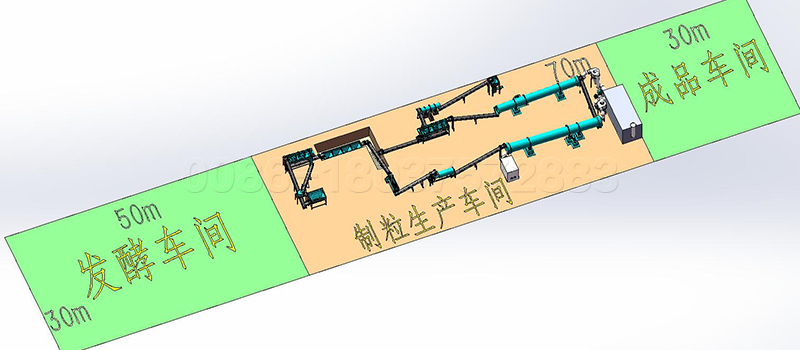In the current process of agricultural production, we all advocate the application of organic fertilizer, but many farmers reflect that the nutrient loss of organic fertilizer is very serious, and they don’t know how to prevent and control it. Why? Organic fertilizer nutrients so powerful? Today, let’s look at the causes of nutrient loss.
How to make organic fertilizer with high qulaity? GO to https://organicfertilizerplants.com/organic-fertilizer-production-process/
1、 Prevent nutrient loss caused by gas volatilization
In the process of decomposition, nitrogen in organic fertilizer will be converted into ammonia, resulting in volatilization loss. Therefore, when it decomposes, it must be covered with plastic film without damage. It should not be piled up for too long and be used as soon as possible after maturity.

Therefore, we suggest that in the fermentation process, we can use the turnover machine to turn over, increase the ventilation and oxygen, promote the proliferation of microorganisms, so as to improve the fermentation speed. Our factory produces different types of composter for customers to choose.
2、 Prevent nutrient loss caused by chemical reaction
Human waste and ashes are an example. Many vegetable farmers still put some ash in human manure to prevent flies or odor. Plant ash is rich in potassium carbonate and alkaline in pH. Human excreta is acidic organic fertilizer, so the two meet, acid-base neutralization, nutrient loss. Therefore, human manure and ash should be separated from each other in composting and fertilization to avoid single, single and disposable use. Ash should not be poured into organic fertilizer to prevent ash from being drenched by rain. In addition to the examples of human manure and grass ash, we should also learn more about the chemical reactions between different materials to prevent nutrient loss.
3、 Prevent leakage and nutrient loss
For example, rice husk, duck dung, cow dung, and so on, ordinary people will water on the dunghill to make it easier to rot, but often nutrients will seep into the water because there is no anti leakage measures. Leakage and loss. Therefore, whether it is used in the pit or flat on the ground, it must be covered with plastic film to prevent nutrients from leaking with water. Therefore, water must be adequate. The water needed for organic fertilizer fermentation is generally 45% – 60% to avoid material inclusion. It is better to drop water loosely. How to turn these types of materials into organic fertilizer? Go to https://organicfertilizerplants.com/
In order to increase the nutrients of organic fertilizer and produce high-quality organic fertilizer, we must avoid these phenomena when we produce organic fertilizer.

